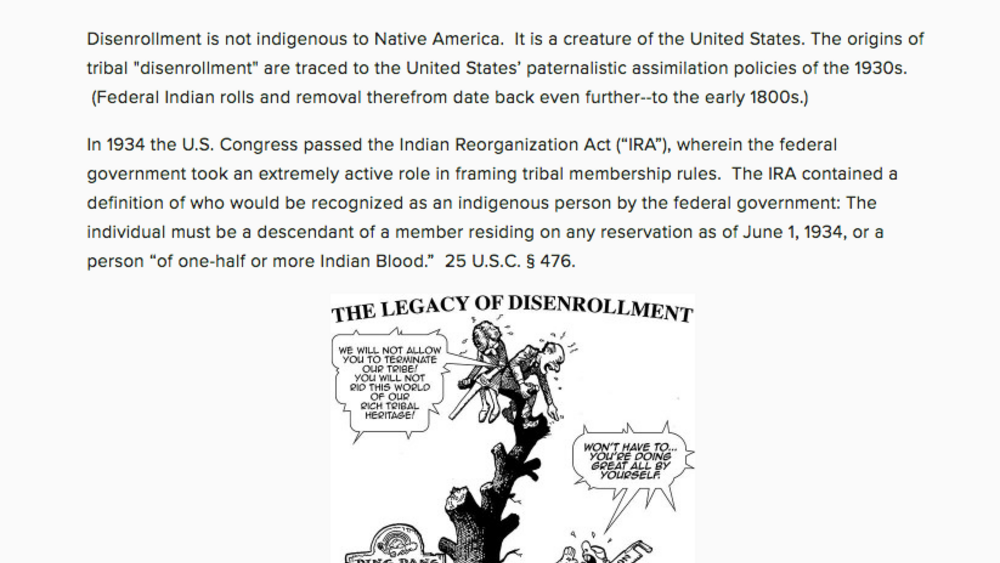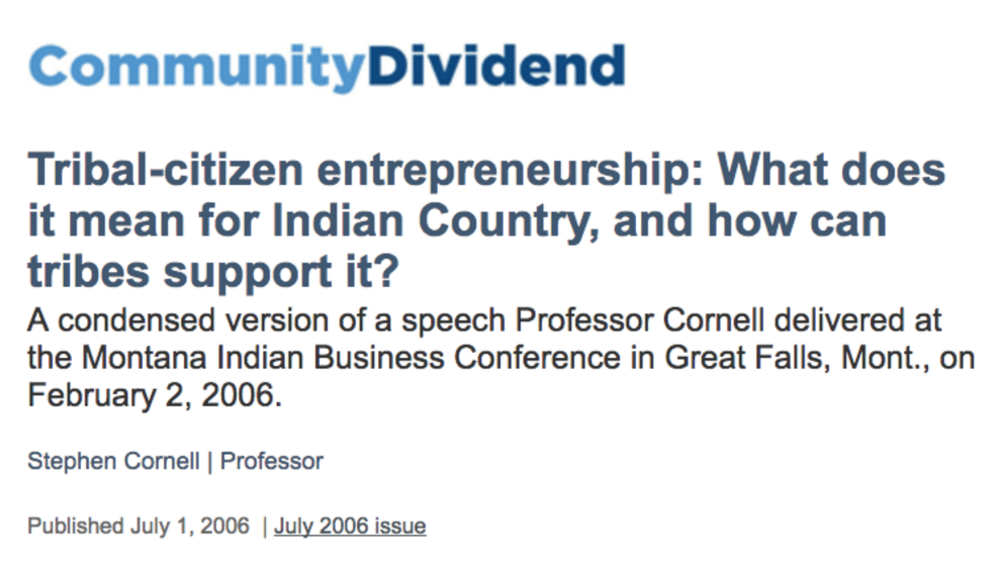For most of the modern tribal self-determination era, American Indian nations have emphasized inclusion. Starting in the early 1970s, higher tribal membership numbers equated to higher federal self-determination dollars. As tribes otherwise redoubled their efforts to reverse the destruction caused by preceding federal Indian removal, assimilation, and relocation policies, tribes found strength in numbers through expanded membership. Once-terminated tribes that were restored over the last few decades were particularly aggressive about bulking up their membership rosters in order to rebuild everything that the United States destroyed in the 1950s. Because of the once normative nature of American indigenous kinship-based systems of inclusion, the Indian Nation rebuilding efforts were second nature...
Additional Information
Galanda, Gabriel S. "The Unintended Consequences of Disenrollment." Indian Country Today Media Network. February 2, 2015. Opinion. (https://ictnews.org/archive/the-unintended-consequences-of-disenrollment, accessed February 22, 2023)



